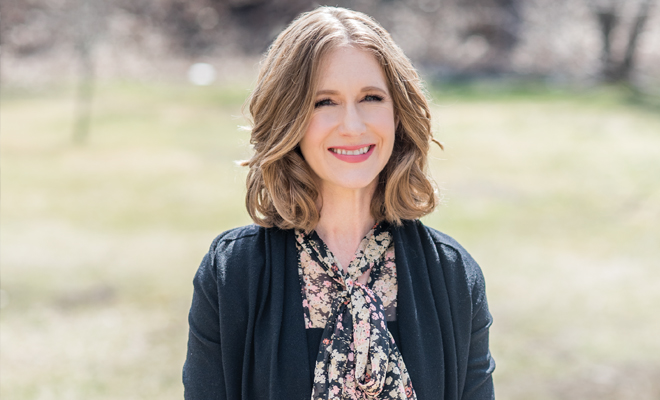 Jill Richardson
Jill Richardson
Abbey Kocan: Addressing Tanzania’s Maternal and Newborn Healthcare Crisis
As women, we feel a connection to one another that transcends space, time and age. Each of us has a voice, and for many, it is heard and listened to. There are women who do not have the opportunity to give a voice to their story and grasp what life has to offer. Abbey Kocan, executive director of Saratoga Springs-based Kupona Foundation, hopes to change that.
Abbey believes that healthcare is a foundation on which opportunities for education, community involvement and employment can be built. “Kupona” is a Swahili word that means “to heal.” This non-profit organization is dedicated to providing high-quality healthcare to those who need it most. Kupona currently works exclusively in Tanzania, East Africa, alongside their sister organization, Comprehensive Community Based Rehabilitation in Tanzania, or CCBRT. Together, they provide life-changing healthcare services to women, children and people living with disabilities.
Addressing Vulnerabilities
Abbey explained, “Population growth puts tremendous pressure on healthcare systems. Vulnerable communities, including women and girls, newborns and people with disabilities, are those most likely to suffer if a healthcare system is broken. Tanzania has very few specialist healthcare providers in the country, and only half of the facilities that do exist have the staff, equipment and infrastructure they need to provide safe, quality surgical care.” She believes and has seen first-hand how common, relatively simple surgical procedures, such as a Caesarean section, cataract surgery or a cleft lip repair, can be not only life-saving, but life-changing.
As a woman, and as a mother, Abbey feels especially passionate about Kupona’s work to eradicate obstetric fistula and to make high-quality maternal and newborn healthcare available to all. Obstetric fistula is a debilitating and devastating childbirth injury most often caused by prolonged obstructed labor without access to timely, high-quality medical care. Women with obstetric fistula are left with chronic incontinence, leaking urine, feces or both. In 90 percent of cases the baby does not survive the traumatic delivery. Obstetric fistula carries severe stigma in many Tanzanian communities, with women often accused of witchcraft and adultery during pregnancy. Women living with fistula are often abandoned by their family, excluded from their community and unable to work. As a consequence, they are some of the poorest and most marginalized people in the world. Estimates suggest that more than 2 million women are living with fistula in Asia and sub-Saharan Africa. In Tanzania, up to 3,000 new cases occur every year.
“At Kupona Foundation, we often refer to obstetric fistula as a ‘silent tragedy,’ affecting members of our global community who struggle to make their voices heard even before they are faced with severe trauma,” Abbey shared. “It is made even more difficult to endure by the myths and misconceptions that are held up as fact in their communities. Women living with obstetric fistula are hidden from view. As a result, those with the power to change things are oblivious to their struggle.”
Creating Healthcare Solutions
“The good news?” Abbey smiled. “Obstetric fistula is both treatable and preventable. People like you and me, and the readers of this article, have the power to change things. That’s where we come in.” Kupona Foundation mobilizes resources in the United States to support affordable high-quality treatments for vulnerable people, training healthcare workers, supporting capital improvements and making investments to help build a sustainable healthcare system in Tanzania. Kupona’s partner organization, CCBRT, is one of the largest providers of fistula treatment in the world. Committed to a comprehensive, holistic approach to care, CCBRT provides surgery, accommodation, food, physical rehabilitation and counseling to all fistula patients free of charge during an average three-week stay at the hospital. In 2018, thanks to the support of their donors and partners, Kupona and CCBRT supported the treatment of 727 women with fistula, helping them rebuild their lives.
Abbey, originally from Clifton Park, has always had a strong desire to help others; her parents, Debby and Steve Seaboyer, instilled a sense of caring in her and modeled the importance of a strong work ethic. Abbey earned a bachelor’s degree in sociology and Spanish at Bucknell University, Lewisburg, Pennsylvania, where her sociology classes sparked a career goal to give back through the nonprofit sector. She returned to school to earn her MBA at Emory University in Atlanta, Georgia, in her late 20s, recognizing the value of a business acumen. “Growing up in the Capital Region, I always had a sense that we were very fortunate and that so many people around the world did not have their most basic needs met. It wasn’t until I lived in Tanzania in 2012 that the gravity of what that meant really became apparent to me.”
Abbey found her calling when her husband, Michael, was offered a consulting project in Tanzania. She was also working as a management consultant at the time and was able to take a sabbatical to join him for five months. Living in Tanzania, Abbey was not only struck by the challenges and hardships facing people every day, but also by the opportunities that existed to fundamentally change the trajectory of their lives.
Stepping Up to Opportunity
“My husband and I met in our fourth year at Bucknell. Mike now runs an investment firm through which he makes early-stage venture capital investments with a focus on technology companies. We first connected on a shared passion for travel and an interest in exploring the world,” she smiled. “I rambled about studying abroad in Spain for two hours on the night we met. He grew up in rural Pennsylvania. We both had a sense that the world was much bigger than what we experienced growing up, and we wanted to make a difference in that bigger world.”
So many factors inspired her to do what she is doing with Kupona, but the biggest driver was the opportunity she saw in Tanzania. Abbey made a huge career change in September 2013, leaving the consulting world to take over as the executive director of Kupona Foundation. The support of her husband, family and business school classmates gave her the faith to take the leap.
When Abbey became a mother in 2015, the maternal health angle of Kupona’s work took on a new meaning. After a healthy pregnancy, she needed an emergency C-section to safely deliver her son. The team at Saratoga Hospital moved quickly to do what was necessary to save his life. “The heartbreaking thing is that thousands of families in Tanzania aren’t as fortunate,” she said. “They are facing a maternal and newborn health crisis, with patients overwhelming facilities, staff who are undertrained and overworked, and inadequate equipment and supplies. When we started our maternal and newborn healthcare program in 2009, it was not uncommon to see up to four women in labor sharing one bed. Every year, 11,000 women die due to complications in pregnancy and childbirth, and 66,000 babies don’t survive their first month of life.
Mothers Supporting Mothers
“I’m proud of the difference our Kupona community has made to address this crisis. Since 2012, an expectant mother’s chance of survival has increased by over 40 percent, and premature baby survival has increased by 19 percent. We are fundraising to support continued quality improvements for 80,000 women delivering their babies in 23 healthcare facilities in Tanzania and to support the opening of our partner’s new Maternity and Newborn Hospital in 2020. At capacity, this new 200-bed hospital will provide 12,000 deliveries every year, significantly reducing overcrowding in the region.” Abbey was thrilled when Saratoga Springs-based marketing agency Fingerpaint pledged its support toward maternal and newborn healthcare in late 2018 through a five-year partnership with Saratoga Hospital and a three-year commitment to Kupona Foundation.
When not racing around with her responsibilities, Abbey enjoys spending time with her family outdoors, hiking, running, waterskiing and snow skiing. She has practiced yoga for the past ten years, and she’s a recent adopter of Peloton, which provides much-needed flexibility to fit in workouts with her three and a half-year-old son and four-month-old daughter. She relies on family, travel and friends for inspiration, as well as nature, her children, her colleagues in Tanzania and her husband.
When asked about the challenges she has faced leading Kupona, she noted, “One of our greatest strengths, and challenges, is the nature of our lean organization. Having a small team enables us to be agile and to ensure our resources are focused where they can have the greatest impact. It means that we don’t have to deal with bureaucracy. But it also means that sometimes we have to say no to opportunities that I’d love to pursue. I am inspired by the donors and partners we work with; they are the ones who make everything possible. What keeps me up at night is knowing that the next big donation or grant could only be one or two phone calls, meetings, or emails away. Being able to make the connection between the individual or organization who sees a reflection of their values in your cause, and who recognizes how they can make an immediate and long-term impact, is incredibly gratifying. The challenge is making enough time and space to ensure I am open to and can make those connections!”
Continuing the Work
As this is Kupona’s tenth anniversary year, Abbey has her vision set on ensuring that Kupona is having the greatest possible impact, reaching more women living with fistula and more mothers and babies who need life-saving care. She hopes to raise $1.5 million by the end of the year in advance of the new Maternity and Newborn Hospital opening in 2020. The final phase of construction began in March.
Abbey’s advice to other women desiring to follow their dreams? “Don’t be intimidated by global challenges that may seem insurmountable. Talk to people, read and do your own research. Find the people and organizations that are addressing these challenges in a way that aligns with your values. My hope is that this story will open the eyes of HERLIFE readers not only to the reality facing women living with fistula and mothers in other parts of the world, but also to the opportunity every one of us has to change the status quo.”
Two dates in May that are meaningful in the fight against fistula are Mother’s Day on May 12 and International Day to End Obstetric Fistula on May 23. ■
For more information, visit kuponafoundation.org, or find them on Facebook and Twitter.







